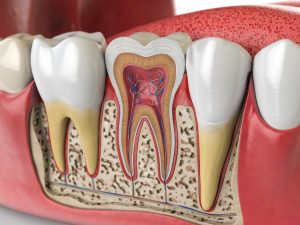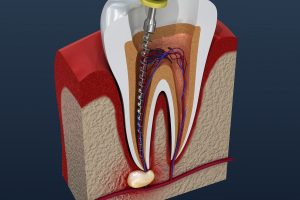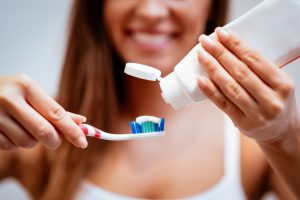 Nothing is worse than taking seemingly great care of your oral health and then enduring some form of infection such as decay or gingivitis. After all, you have done your part to brush, right? The problem arises, however, when a preventive dental routine is not as well-rounded as one might hope. In fact, sub-par care can cause complications to arise, in addition to missing your routine six-month checkup. In today’s blog, your Cedar Rapids, IA dentist discusses the importance of attending these routine appointments and how failing to do so can lead to a variety of major concerns down the line.
Nothing is worse than taking seemingly great care of your oral health and then enduring some form of infection such as decay or gingivitis. After all, you have done your part to brush, right? The problem arises, however, when a preventive dental routine is not as well-rounded as one might hope. In fact, sub-par care can cause complications to arise, in addition to missing your routine six-month checkup. In today’s blog, your Cedar Rapids, IA dentist discusses the importance of attending these routine appointments and how failing to do so can lead to a variety of major concerns down the line.
What Gingivitis Means For Your Health
 It goes without saying that there are countless threats to your oral health out there, meaning it is imperative you do everything in your power to keep your smile happy and healthy. In many cases, this is a lot easier said than done, however, and infection can progress much more rapidly than you might have previously anticipated. In today’s blog, your Cedar Rapids, IA dentist will take a look at the common concern of gum disease, and how proper treatment can mitigate the negative impact on your health before it is too late.
It goes without saying that there are countless threats to your oral health out there, meaning it is imperative you do everything in your power to keep your smile happy and healthy. In many cases, this is a lot easier said than done, however, and infection can progress much more rapidly than you might have previously anticipated. In today’s blog, your Cedar Rapids, IA dentist will take a look at the common concern of gum disease, and how proper treatment can mitigate the negative impact on your health before it is too late.
Tackling Multiple Blemishes With Veneers
 Oral function and overall health are the most important things to consider when it comes to your smile. After all, a compromised or infected tooth will impact your strength and appearance as well. Indeed, preventive dentistry is necessary for maintaining your smile for life, and only when you have a grasp on your routine can you enjoy the benefits of a healthy grin. In today’s blog, your Cedar Rapids, IA dentist will take a look at circumstances that may not harm your health but can result in noticeable blemishes that impact your self-confidence, and how porcelain veneers may be the solution.
Oral function and overall health are the most important things to consider when it comes to your smile. After all, a compromised or infected tooth will impact your strength and appearance as well. Indeed, preventive dentistry is necessary for maintaining your smile for life, and only when you have a grasp on your routine can you enjoy the benefits of a healthy grin. In today’s blog, your Cedar Rapids, IA dentist will take a look at circumstances that may not harm your health but can result in noticeable blemishes that impact your self-confidence, and how porcelain veneers may be the solution.
Why You Must Fill Those Cavities
 Nothing is more discouraging than doing everything right to protect your smile and still facing concerns such as minor stains, chips, or cracks. Indeed, accidents and mishaps can occur at any given time, and while our teeth are strong, they are not indestructible. In fact, factors such as dental decay and infection aim to significantly weaken your tooth’s natural strength and, inevitably, will lead to the loss of one or more structures without sufficient treatment. In today’s blog, your Cedar Rapids, IA dentist discusses the dangers and pitfalls that lead to tooth loss and how decay can be circumvented early with the help of dental fillings.
Nothing is more discouraging than doing everything right to protect your smile and still facing concerns such as minor stains, chips, or cracks. Indeed, accidents and mishaps can occur at any given time, and while our teeth are strong, they are not indestructible. In fact, factors such as dental decay and infection aim to significantly weaken your tooth’s natural strength and, inevitably, will lead to the loss of one or more structures without sufficient treatment. In today’s blog, your Cedar Rapids, IA dentist discusses the dangers and pitfalls that lead to tooth loss and how decay can be circumvented early with the help of dental fillings.
Lifelike Results With Bonding
 It goes without saying that our grins endure a significant number of oral threats on the daily. Indeed, from dangerous decay to chronic teeth-grinding and everything in-between, maintaining a healthy smile for life can sometimes seem like a daunting process. In some situations, however, protection from oral bacteria may not necessarily be the biggest issue, and instead a noticeable chip or crack may make you feel insecure about your smile. In today’s blog, your Cedar Rapids, IA dentist takes a look at the negative impact noticeable cracks or chips have on one’s self-confidence, and how cosmetic bonding and contouring can help.
It goes without saying that our grins endure a significant number of oral threats on the daily. Indeed, from dangerous decay to chronic teeth-grinding and everything in-between, maintaining a healthy smile for life can sometimes seem like a daunting process. In some situations, however, protection from oral bacteria may not necessarily be the biggest issue, and instead a noticeable chip or crack may make you feel insecure about your smile. In today’s blog, your Cedar Rapids, IA dentist takes a look at the negative impact noticeable cracks or chips have on one’s self-confidence, and how cosmetic bonding and contouring can help.
Removing Internal Decay
 Loving the smile you are in is a major goal that many individuals aim to achieve. Your dentist also encourages cosmetic smile upkeep, but also emphasizes the importance of oral health as a priority. In fact, your oral health is affected by such a wide variety of concerns that ensuring its proper care is a lifelong, never-ending process. Still, threats such as decay and infection can significantly break down all of the effort you have put into your health, and it is imperative to seek assistance as soon as possible. In today’s blog, your Cedar Rapids, IA dentist takes a look at the manner in which decay progresses and infects the inside of a tooth, as well as how a root canal treatment may be able to help.
Loving the smile you are in is a major goal that many individuals aim to achieve. Your dentist also encourages cosmetic smile upkeep, but also emphasizes the importance of oral health as a priority. In fact, your oral health is affected by such a wide variety of concerns that ensuring its proper care is a lifelong, never-ending process. Still, threats such as decay and infection can significantly break down all of the effort you have put into your health, and it is imperative to seek assistance as soon as possible. In today’s blog, your Cedar Rapids, IA dentist takes a look at the manner in which decay progresses and infects the inside of a tooth, as well as how a root canal treatment may be able to help.
Three Ways Cosmetic Dentistry Enhances Your Smile
 In light of oral cancer awareness month, last week’s blog took a look at the manner in which oral cancer develops and affects a variety of individuals of all ages. Indeed, your oral health is influenced by a myriad of threats, concerns, and more, and it is up to you to ensure its proper care. In some situations, however, function, health, and structure may be in tip-top condition, leaving your biggest threat as those to your smile’s appearance. In today’s blog, your Cedar Rapids, IA dentist will explain the benefits behind cosmetic dentistry and how there are a few different treatment options to handle a variety of blemishes.
In light of oral cancer awareness month, last week’s blog took a look at the manner in which oral cancer develops and affects a variety of individuals of all ages. Indeed, your oral health is influenced by a myriad of threats, concerns, and more, and it is up to you to ensure its proper care. In some situations, however, function, health, and structure may be in tip-top condition, leaving your biggest threat as those to your smile’s appearance. In today’s blog, your Cedar Rapids, IA dentist will explain the benefits behind cosmetic dentistry and how there are a few different treatment options to handle a variety of blemishes.
It’s Time To Check For Oral Cancer
 It is no surprise at this point that preventive dentistry is the name of the game when it comes to ensuring the health of your smile for life. Indeed, taking care of your grin is a lifelong practice that is heavily involved, and falling short on any step can become potentially detrimental for its health and strength. In some cases, however, threats may not be avoidable in their entirety, but there are steps you can take to reduce risk. In today’s blog, your Cedar Rapids, IA dentist discusses the importance of checking for oral cancer when you come in for your visit, as well as what steps you can take to reduce your risks.
It is no surprise at this point that preventive dentistry is the name of the game when it comes to ensuring the health of your smile for life. Indeed, taking care of your grin is a lifelong practice that is heavily involved, and falling short on any step can become potentially detrimental for its health and strength. In some cases, however, threats may not be avoidable in their entirety, but there are steps you can take to reduce risk. In today’s blog, your Cedar Rapids, IA dentist discusses the importance of checking for oral cancer when you come in for your visit, as well as what steps you can take to reduce your risks.
Proper Preventive Practices At Home
 Oral health is far from straight-forward, as there seems to be a never-ending list of concerns that can threaten it. Some of these may include dental decay or infection, while others consist of bruxism and TMJ disorder. Indeed, this list means that constant care and consideration must be given to how we treat our grins. In today’s blog, your Cedar Rapids, IA dentist wants to take a look at the importance of preventive dentistry and how staying on top of an effective routine can pave the way for a lifelong smile.
Oral health is far from straight-forward, as there seems to be a never-ending list of concerns that can threaten it. Some of these may include dental decay or infection, while others consist of bruxism and TMJ disorder. Indeed, this list means that constant care and consideration must be given to how we treat our grins. In today’s blog, your Cedar Rapids, IA dentist wants to take a look at the importance of preventive dentistry and how staying on top of an effective routine can pave the way for a lifelong smile.
When Bruxism Results In Jaw Dysfunction
 Your oral health takes into consideration more factors than just the strength of your teeth. As a matter of fact, the quality of your oral structures, tongue, gums, jaw, cheeks, lips, and throat all contribute the quality of your overall oral health, which means ensuring each of these aspects is functioning properly is critical. In today’s blog, your Cedar Rapids, IA dentist will take a look at the effects of teeth-grinding on your smile and how it may lead to a serious jaw dysfunction known as TMJ disorder.
Your oral health takes into consideration more factors than just the strength of your teeth. As a matter of fact, the quality of your oral structures, tongue, gums, jaw, cheeks, lips, and throat all contribute the quality of your overall oral health, which means ensuring each of these aspects is functioning properly is critical. In today’s blog, your Cedar Rapids, IA dentist will take a look at the effects of teeth-grinding on your smile and how it may lead to a serious jaw dysfunction known as TMJ disorder.




Recent Comments